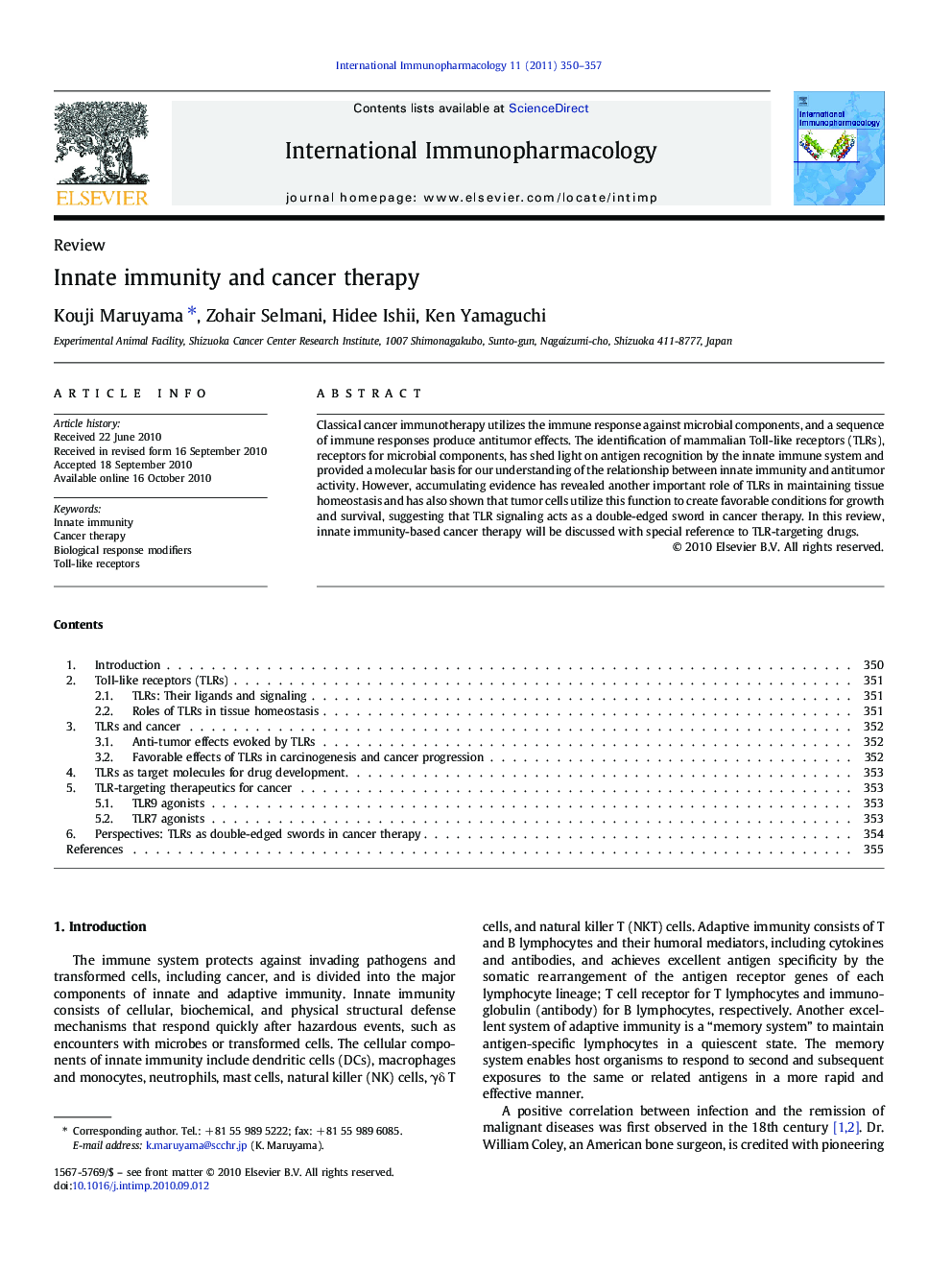| Article ID | Journal | Published Year | Pages | File Type |
|---|---|---|---|---|
| 2541091 | International Immunopharmacology | 2011 | 8 Pages |
Classical cancer immunotherapy utilizes the immune response against microbial components, and a sequence of immune responses produce antitumor effects. The identification of mammalian Toll-like receptors (TLRs), receptors for microbial components, has shed light on antigen recognition by the innate immune system and provided a molecular basis for our understanding of the relationship between innate immunity and antitumor activity. However, accumulating evidence has revealed another important role of TLRs in maintaining tissue homeostasis and has also shown that tumor cells utilize this function to create favorable conditions for growth and survival, suggesting that TLR signaling acts as a double-edged sword in cancer therapy. In this review, innate immunity-based cancer therapy will be discussed with special reference to TLR-targeting drugs.
